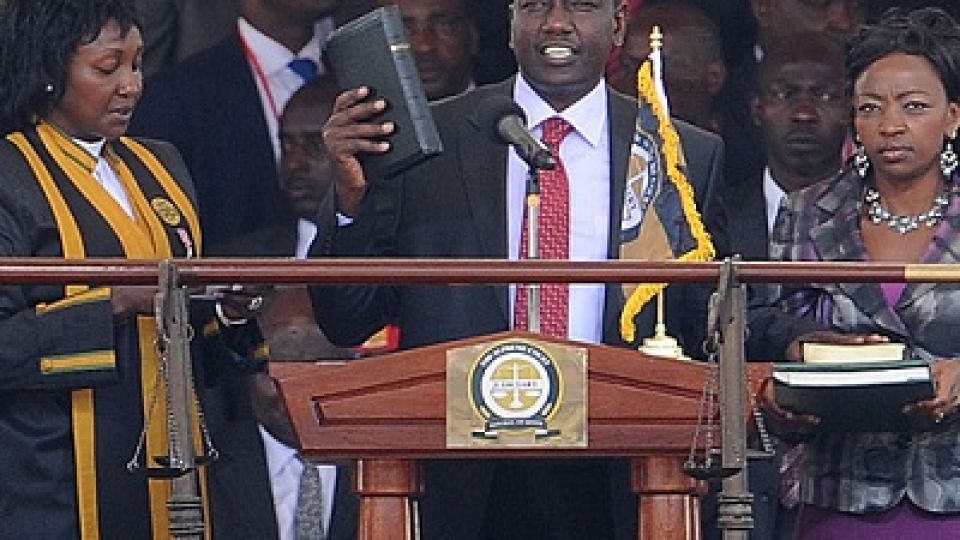from MARIA MACHARIA in Nairobi, Kenya
Kenya Bureau
NAIROBI, (CAJ News) – DEPENDING on perspective, Kenyan President William Ruto is treading on an infamous path by aspirant leaders that promise to democratize their countries, only to slide them further into dictatorship once elected into office.
Or, longtime aspiring president, Raila Odinga, is continuing a trend by some disgruntled opposition leaders who resort to violence in a bid to destabilize the incumbent after failing in their bid for power.
Either way, the widening rift between the two men and their rival political coalitions is plunging the East African country into a crisis reminiscent of 15 years ago when it earned pariah status and was the subject of a probe by the International Criminal Court (ICC).
Investors have reportedly been shunning Kenya, East Africa’s largest economy, and instead, considering the more stable Tanzania, to the south.
Wednesday marked another tragic day on the streets of the country’s main cities and Thursday (today) is forecast to be no less bloody when the main opposition Azimio la Umoja– (One Kenya) Coalition Party planning to spill into the streets despite an order by a police service allegedly partisan to the ruling, Kenya Kwanza (Kenya First) alliance, outlawing the mass action.
In a disturbing turn of events on Wednesday, Odinga accused law enforcers of the “illegitimate regime” of targeting innocent children, using live bullets.
“Totally unwarranted, unjustifiable and uncalled for,” the longtime opposition leader stated.
He posted an image of a boy, having sustained what is believed to be a bullet wound on the leg.
The incident is said to have occurred in Mashimoni-Kibra on Wednesday.
Physicians for Human Rights has documented widespread use of excessive force in Kenya over recent weeks, including an incident in which some 53 primary school children were hospitalised after security forces deployed tear gas in a Nairobi classroom.
Odinga asked his supporters to end anti-government protests on Wednesday evening and resume Thursday morning.
Azimio also circulated a picture depicting a man said to be a police officer having shot dead an unidentified civilian in Mandera.
Earlier, Azimio reported the abduction of Odinga’s bodyguard, Maurice Ortega, by suspected state security agents.
The coalition had disclosed it had by early Thursday failed to ascertain his whereabouts.
Again in the early hours, Azimio announced an urgent court application for the release of its members it said had been arrested during the skirmishes.
Up to 23 people have reportedly been killed during the week-long protests, according to the United Nations Human Rights Office.
The Media Council of Kenya (MCK) reported police were camouflaging as journalists covering protests, with intent to arrest demonstrators.
“Impersonation of journalists is a grave unprofessional misconduct on the part of the police and endangers the lives of journalists in the line of duty,” said David Omwoyo, MCK Chief Executive Officer.
The media council disclosed some journalists had too been arrested covering the protests.
Police had not commented on the allegations but said an officer was under investigation for online posts making “misleading and reckless remarks.”
The officer is quoted on video reading some comments from the public, including those calling for Ruto to step down or engage Odinga in dialogue.
“The remarks are therefore regrettable and stand condemned in the strongest terms possible, even as we embark on an internal review with a view of preferring appropriate disciplinary action,” the National Police Service stated.
Dialogue between the rival parties has stalled.
Mkenya Daima, the civil society organisation that brokered a peace pledge between the rivals, paving way for largely peaceful polls in October, denounced the degeneration to violence, month end after pledges for peace.
“Hardly a year on and our political atmosphere has been polluted and darkened by recent events that are attempting to reverse all our gains,” the group stated.
It noted political language had become “bitter, divisive and ugly”, bordering on violence and incitement.
“Political activity has turned violent with citizens pelting stones and the police lobbing tear-gas as they fire guns,” Mkenya Daima stated.
“Property has been lost to fires, the innocent dispossessed, education disrupted and even lives lost. Intolerance, ultimatums, violence – ills we had hoped to have buried forever have been resurrected with menace.”
Envoys from Australia, Canada, Denmark, Finland, Germany, Ireland, Netherlands, Norway, Sweden, Switzerland, Ukraine, United Kingdom (UK) and United States (US), posted in Kenya have jointly condemned the deadly violence.
“We stand ready to support the parties in their efforts to find constructive and peaceful solutions,” they jointly stated.
Protests over the economic problems feed on the disputed poll outcome last October when Odinga failed a fifth bid for the presidency. He cites vote rigging.
His rejection of the results in 2007/08, led to violence that assumed ethnic dimensions and left up to 1 500 people dead and 600 000 others displaced.
During the same 2007/08 period, Odinga entered into a unity government as Prime Minister. Mwai Kibaki retained the presidency.
Years later, the ICC cleared Ruto and his predecessor, Uhuru Kenyatta of murder, deportation and persecution during the post-election conflict.
Kenyatta and Ruto fellout ahead of last year’s elections when Kenyatta endorsed Odinga, instead of Ruto, who was Kenyatta’s deputy as president.
– CAJ News

